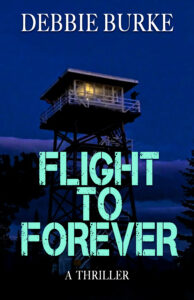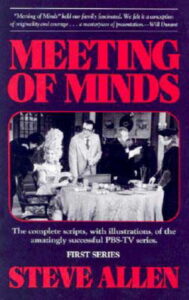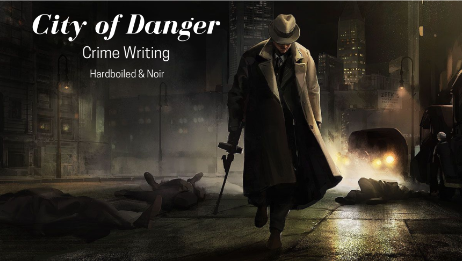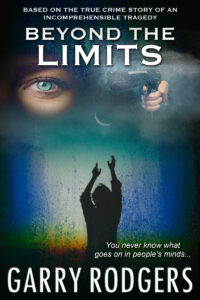Border Collie Syndrome (not Border Collie Collapse)
Transitioning to a Writer’s Life
Dear Writer,
Background
I recently retired from a busy job/occupation and began “settling in” to what I had long desired, a “writer’s life.” The only problem, I was having trouble settling in.
I looked around and saw things that I should have done 10-20 years ago, and I was tempted to work on them. (I didn’t say I did them.) I was distracted by other creative pursuits I wanted to work on. But most of all, I felt like I should be busy every moment—continuously—industriously. Doing something “productive.”
Family
My wife and I saw something similar in our youngest son when he graduated from basic training in the Air Force. He was off base with family for the first time in weeks. He was nervous, constantly checking that his shirt was tucked in correctly, that his pants weren’t wrinkled. He didn’t want to sit down. He couldn’t relax.
Stockholm Syndrome
He acted like a prisoner set free who didn’t know how to feel or act. Was that what was happening to me? I thought of post-prisoner syndrome. Oh, yeah, Stockholm Syndrome. But that was prisoners identifying emotionally with their captors. And Stockholm Syndrome wasn’t actually an official syndrome in the psychiatric diagnostic codes. Plus, I wasn’t a prisoner of a captor. I had been the boss at work. Hmm. Maybe I was a prisoner to myself.
Retirement Syndrome (“CEO Blues”)
I looked up Retirement Syndrome. Now, here was something that was beginning to fit, at least some components of it:
- Loss of public exposure and contact
- Loss of influence and control
- Loss of steady income
I certainly missed contact with people. And, even though my wife and I had saved for retirement, I worried about the end of a steady income. I had worked to support myself for over fifty years. There was something about letting go that was a little scary.
Workaholic Syndrome
What about Workaholic Syndrome? For many years I worked ten-hour days, and still went home to paperwork in the evenings. I was self-employed. If I didn’t do it, it wouldn’t get done, or wouldn’t get done right. Yes, I fit the mold of feeling compelled to work, and that work had gotten in the way of my family life and social life. My ex-wife had definitely convinced my two oldest sons to not even consider a career in medicine.
Border Collie Syndrome (not Border Collie Collapse)
And finally, I remembered something I had learned about dogs. My wife decided she wanted to have a dog, and raise it from a puppy. She researched the different breeds and was intrigued by the intelligence of Border Collies. She visited a local breeder who screened prospective buyers of her puppies very carefully.
“Do you have plenty of room for your dog to roam?” was the first question.
My wife answered yes.
“Do you have work to keep your dog busy, like herding sheep?” was the second question.
My wife answered no.
“Oh, Honey,” the lady said, “if your Border Collie doesn’t have work, he’ll find or make work, even if it’s chasing cars.”
Conclusion
Well, it was all beginning to fit together. I had Workaholic-Retirement Syndrome with underlying Border Collie Syndrome as a co-morbidity.
Fortunately, I’m learning to “settle in.” I look at the unfinished projects and shrug my shoulders. I’ve been able to stay away from my office for three days at a stretch. I’ve given up the evening paperwork. And…I’ve stopped chasing cars.
P.S.
Since writing the rough draft for this post, I’ve pulled out some books and reread them. I’m happy to announce I’ve had my mirror moment. I’ve seen the light.
Transitioning to a writer’s life is not “retirement.” It is a “transition.” It’s not about “settling in.” No, it is about girding up your loins for battle. (The Art of War for Writers, James Scott Bell)
I love what Olin Miller said. “Writing is the hardest way of earning a living, with the possible exception of wrestling alligators.” (The 101 Habits of Highly Successful Novelists, Andrew McAleer)
So, Dear Writer, if you’re considering “retiring” and “settling in” to a writer’s life, stop right there. We must reprogram your thoughts. Remember, it is “TRANSITIONING.” “Settling in” will hereby be removed from acceptable vocabulary.
And if you are still determined to “transition,” please buy/borrow and read the following:
- The Art of War for Writers, James Scott Bell
- How to Make a Living as a Writer, James Scott Bell
- Writing the Novel from Plot to Print to Pixel, Lawrence Block
- The 101 Habits of Highly Successful Novelists, Andrew McAleer
P.S.S.
Dear Writer,
If after reading the above books, you still choose to follow this ill-advised journey, please take two aspirins and call me Monday morning. We will schedule an appointment for a long discussion. And if that does not dissuade you, we will arrange for a psychiatric consultation.
On a more serious note:
Questions:
- For those of you who have already transitioned to a writer’s life, please share with us the barriers you had to overcome. What advice would you offer to those who are contemplating such a change?
- For those of you who are dreaming of or contemplating transitioning to a writer’s life, what questions would you like to ask? Here’s your opportunity to ask a great group of writers.











 And that’s it. Want to see the finished project? Hopefully, the gif will work on TKZ. Otherwise, *awkward.* LOL
And that’s it. Want to see the finished project? Hopefully, the gif will work on TKZ. Otherwise, *awkward.* LOL






